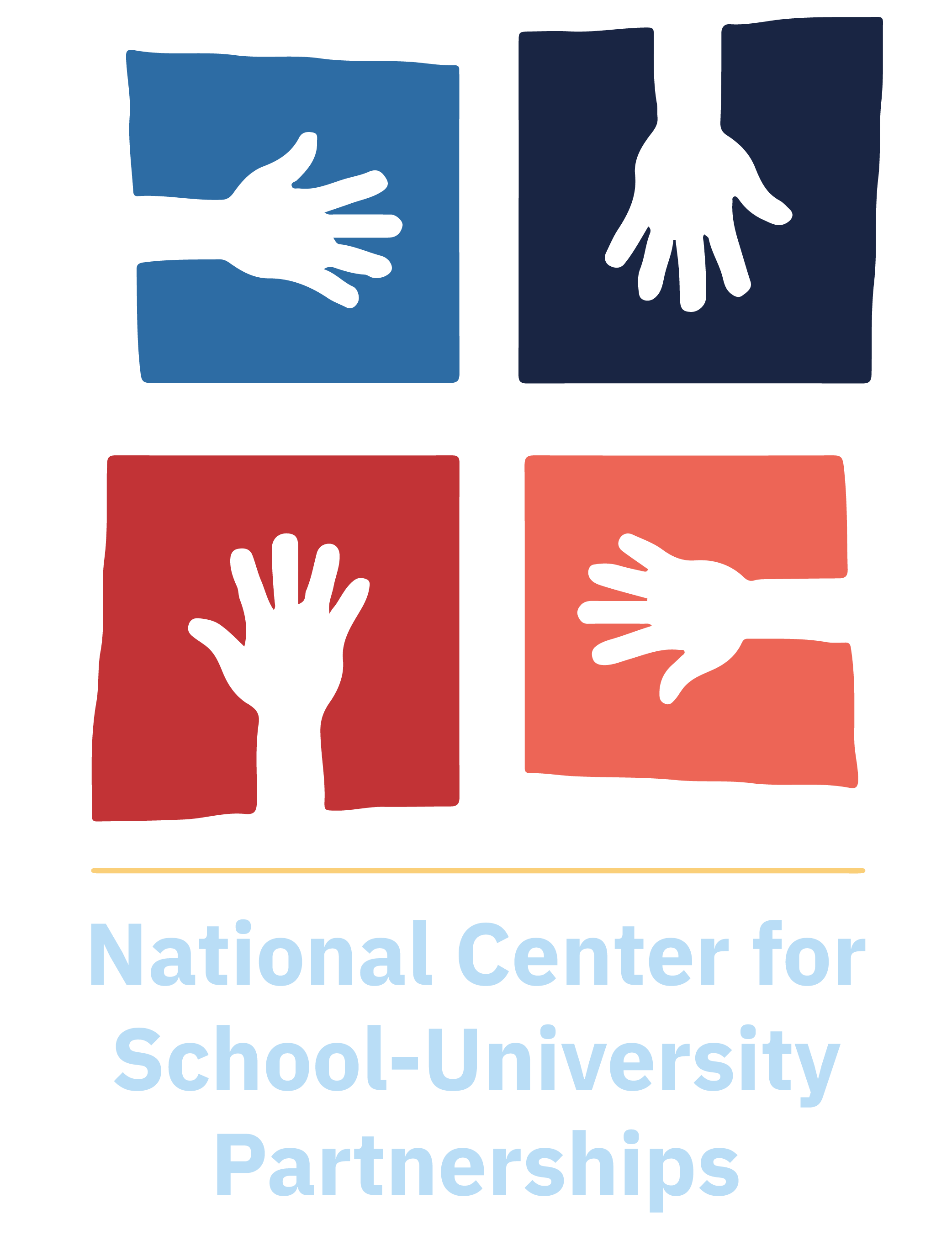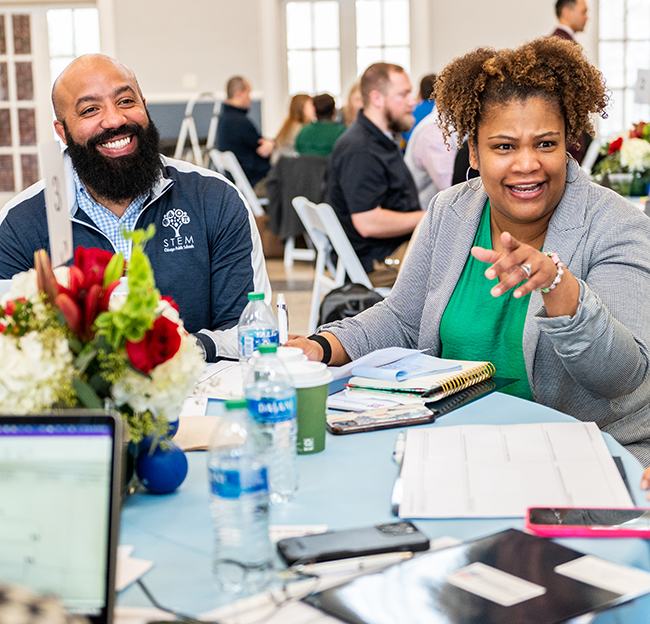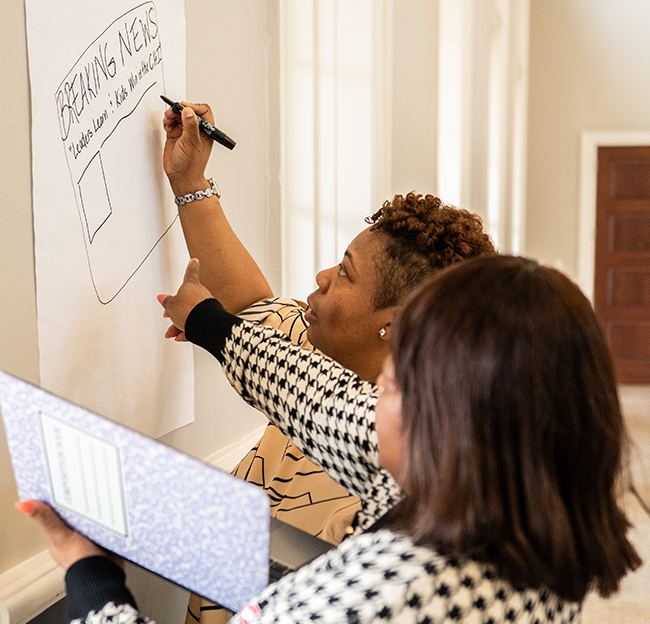National Center for School-University Partnership
The National Center for School-University Partnership is an expanding professional community consisting of district-university partnerships from across the nation. The community aims to provide support for local education agencies (LEAs) and institutions of higher education (IHEs) in their utilization of continuous improvement methodologies to foster the growth of leaders and educators. Additionally, the community is focused on addressing persistent issues that confront districts, schools, and their respective communities. The community facilitates discussions surrounding common dilemmas, shares successful strategies, and engages in role-alike conversations, improvement reviews, and collective problem-solving and planning through the application of improvement science.
School:
School of EducationEmail:
ncsup@olemiss.eduOffice Location:
49 Guyton Drive, University, MS 38677Phone:
662-915-7198Office Hours
Mon - Fri | 8:00 - 5:00
- Home
- Departmental Directory
- Education
- National Center for School-University Partnerships

Want to Learn More?
What is NCSUP?
The National Center for School-University Partnerships (NCSUP) was established in 2023 and extends the work of the Improvement Leadership Education and Development (iLEAD) network. iLEAD was established in 2017 by the Carnegie Foundation for the Advancement of Teaching, with significant support by the Carnegie Corporation of New York. iLEAD was a growing professional community of district-university partnerships from across the country that sought to support local education agencies (LEAs) and institutions of higher education (IHEs) in their use of continuous improvement methods to develop leaders and educators, and address persistent problems that face districts, schools, and their communities.
Our Work
Using Improvement Science to Accelerate Learning and Address Problems of Practice: NCSUP's purpose is building on the work of the Carnegie Foundation for the Advancement of Teaching, the Center supports improvement partnerships nationwide to address high leverage problems of practice. Using Improvement Science, the Center is working to ameliorate chronic absenteeism. This aligns with the Improving Student Achievement Agenda announced by the Biden-Harris administration.
Additionally, NCSUP provides professional development, technical assistance, and tools to help partnerships committed to the use of improvement science to develop leaders, address local problems of practice, and promote equitable educational opportunities and outcomes for all students.

Mission
The mission of the National Center for School-University Partnerships is to foster a collaborative community dedicated to empowering educators, leaders, and institutions to advance access and high-quality learning experiences for all students. Through improvement partnerships, professional development, and practice-based evidence, we strive to dismantle disparities and create a more just and equitable educational system.

Vision
The vision of the National Center for School-University Partnerships is to cultivate exemplary leadership and collaborative networks that drive continuous improvement within schools and school systems. Through robust partnerships and innovative approaches, we aim to deliver transformative educational experiences and ensure excellence for all learners.
Our Goals:
The Model
The Breakthrough Collaborative Model (created by the Institute of Healthcare Improvement [IHI]), brings together teams from different organizations, including districts, schools, and universities, to address common problems such as chronic absenteeism, student mental health, and low graduation rates, among others. Working together, teams in a Breakthrough Collaborative use common tools and a structured learning process to share ideas, test new approaches, and measure progress toward achieving their shared aims. The collaborative learning process, which lasts approximately one year and includes regular and expert coaching, involves several phases including:
- Learning – Participants learn about the challenge, identify best practices, and set goals for improvement.
- Testing – Teams test new ideas and interventions to see what works, for whom, and under what conditions.
- Spreading – Successful ideas and interventions are documented and spread across the participating organizations and beyond.
- Sustaining – Teams work to sustain improvements over time by monitoring progress and making ongoing adjustments.
By partnering together to identify and implement best practices, districts, schools, universities, and other youth-serving institutions can improve the learning opportunities and outcomes of every child, particularly those historically marginalized.
Meet the Team
David Rock
- Dean of the School of Education and Professor of Curriculum & Instruction
Mary Bramlett
- Academic Counselor - NCSUP/Bridge Program Manager
Mo Khalid
- Manager of Technology Services
